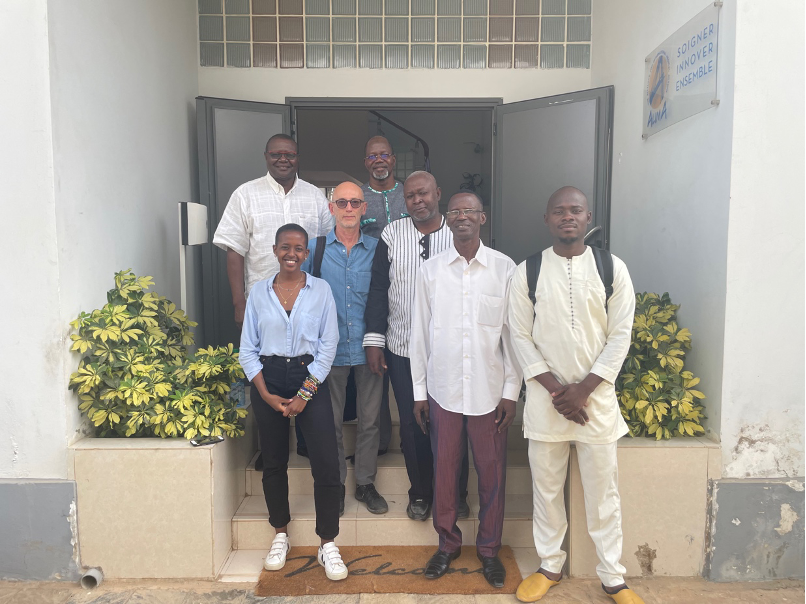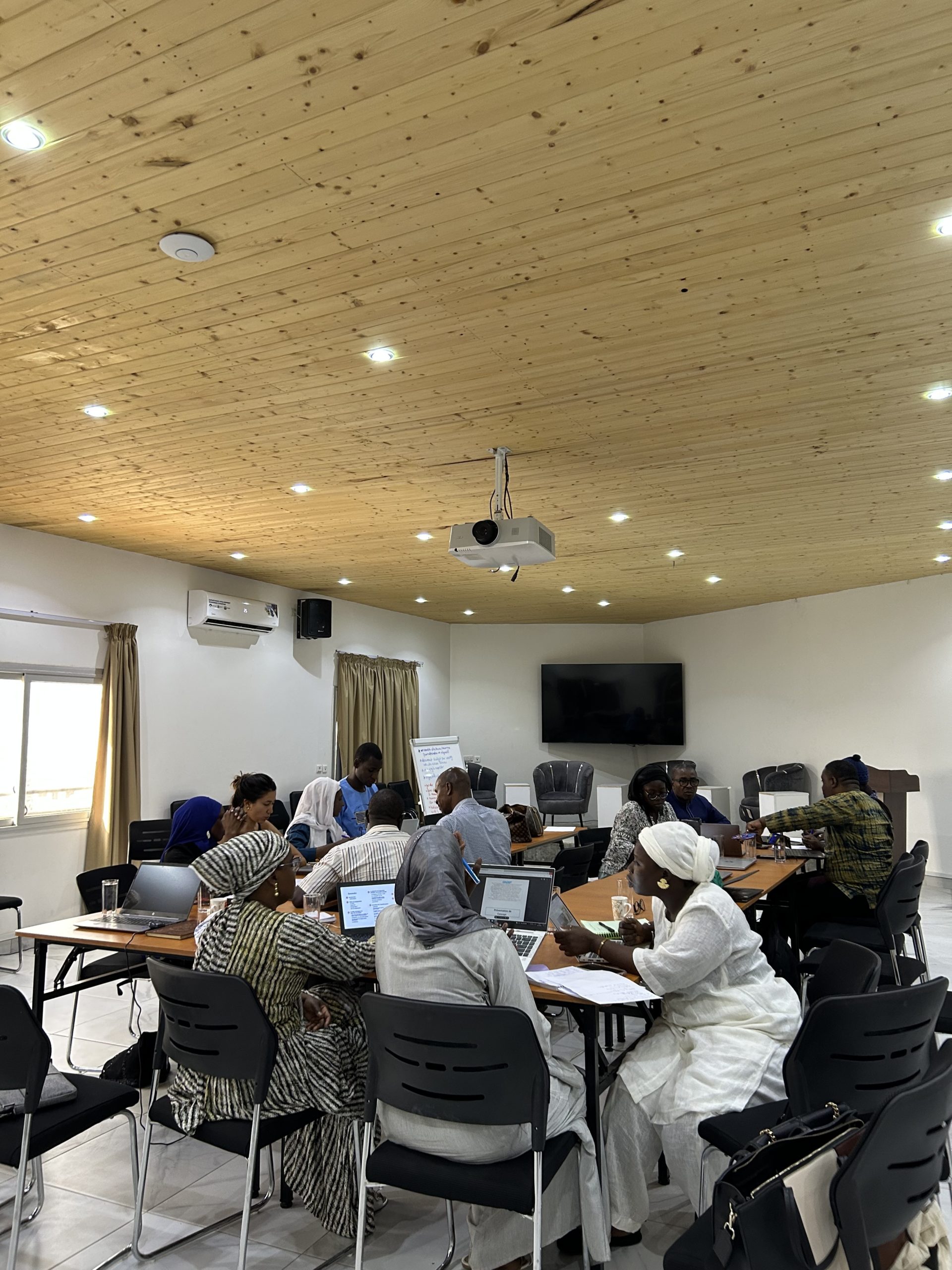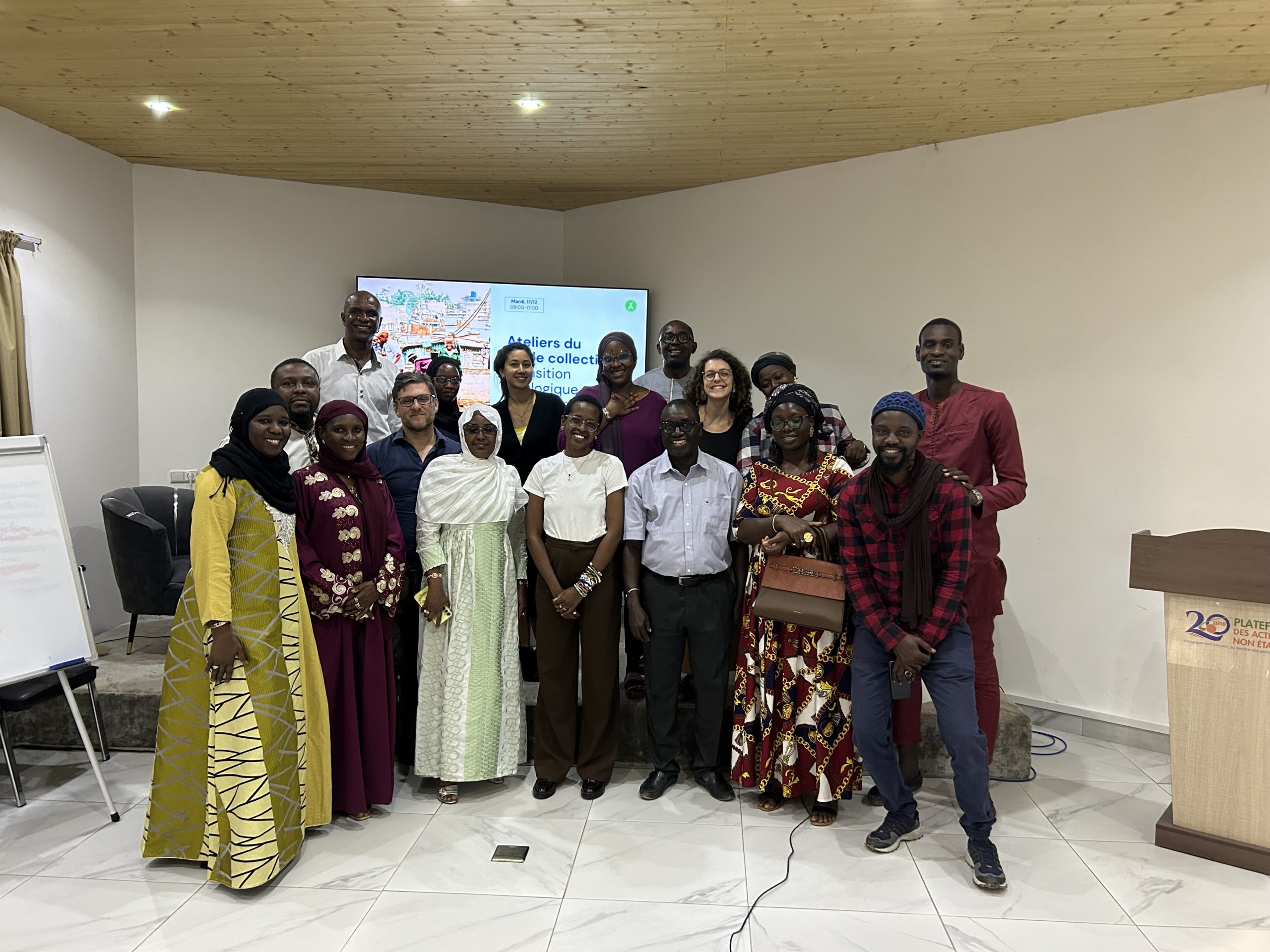The methodology
The collective cycle methodology revolves around mutual learning and collaboration. Each participating organisation works through:
- Data collection and assessments to understand their environmental impact.
- Collaborative workshops to design and select their own solutions.
- Co-creation of tailored roadmaps to align with their specific contexts.
- Implementation of priority initiatives such as waste management, community involvement, and sustainable practices.
Through this process, NGOs benefit from shared expertise, tools for monitoring emissions and waste, and improved access to climate and environmental funding. This model fosters a collective shift toward sustainability, making NGOs and their mission more resilient and better equipped to address current and future climate and environmental challenges.
Cycle 1: A pilot support programme for Sahelian organisations
The inaugural cycle included five national NGOs—Alerte Santé, KEOOGO, BEFEN, SOS Médecins Burkina Faso, and AMCP-SP. For over a period of a year, these organisations developed environmental roadmaps and initiated concrete projects in climate awareness, waste management, and sustainable practices around renewable energy, agroecology and more.
This first experience has been capitalised in a playbook for national actors available here.
Image 1

Cycle 2: Scaling Up in West Africa
Building on the success of the first cycle, the second collective cycle was launched in November 2024, with the support of the PFONGUE, the platform of European NGOs in Senegal. Eight new organisations have come on board of the Accelerator, specifically 6 national NGOs in Senegal, Village Pilote, ONG AGORA, CASADES, ALPHADEV, ONG CONCEPT, YMCA Senegal, 1 national NGO in Cameroon DEMTOU HUMANITAIRE, and 1 international NGO’s Senegal office, SOLTHIS Senegal.
This second cycle aims to broaden the Accelerator’s impact across West Africa by focusing on:
- Developing customized roadmaps for climate adaptation and resilience.
- Simplifying tools for monitoring carbon emissions and waste.
- Strengthening ongoing projects with technical support.
- Facilitating shared learning and knowledge exchange.
- Supporting access to funding for climate, environment, and health projects
Image 2

Want to join the next collective cycles?
If your organization is interested in participating in the next cycle or if a network seeks to collaborate and support its members through collective cycles, please contact us. Together, we can build a resilient and sustainable future for all.
